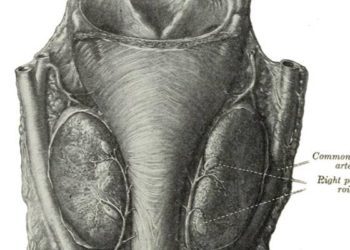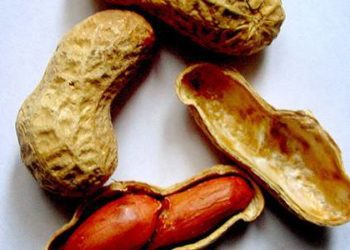Early peanut introduction was not associated with lower prevalence of peanut allergy
1. Introduction of a guideline recommending early peanut introduction to all infants was not associated with significant reduction in prevalence of peanut allergy.
2. Earlier peanut introduction was associated with lower odds of peanut allergy in infants born of Australian but not East Asian ancestry.
Evidence Rating Level: 2 (Good)
In children at-risk for food allergies, randomized clinical trials have shown that earlier peanut introduction can help lower the prevalence of peanut allergies. These results led to guideline changes in 2016 for early peanut introduction for all infants. However, whether early introduction of peanuts decrease the prevalence of peanut allergies in the general population is not known. As a result, the objective of the present study was to measure the change in prevalence of peanut allergy in the general population and in predetermined subgroups of high-risk infants.
This cross-sectional cohort study examined the prevalence of peanut allergy in two groups of Australian infants between the age of 11-15 months. One group consisted of 5276 infants tested between 2007-2011 prior to introduction of guideline changes and the other group consisted of 1933 infants tested in 2018-2019. Age of peanut introduction was evaluated using researcher-administered questionnaires. The primary outcome was prevalence of peanut allergy, which was detected via skin prick tests and confirmed by subsequent oral challenge if positive.
The prevalence of peanut allergy in 2018-2019 cohort was not significantly lower than the 2007-2011 cohort. However, within the 2018-2019 cohort, peanut introduction at 6 months or younger was associated with decreased odds of peanut allergy compared to infants exposed at 12 months or older. Despite these findings, the study was limited by the self-reported nature of peanut exposure as well as unaccounted population differences between these two cohorts. However, this study provided an effective framework for studies aimed at evaluating the efficacy of general dietary guideline changes in the US.
Image: PD
©2022 2 Minute Medicine, Inc. All rights reserved. No works may be reproduced without expressed written consent from 2 Minute Medicine, Inc. Inquire about licensing here. No article should be construed as medical advice and is not intended as such by the authors or by 2 Minute Medicine, Inc.





![The ABCD2 score: Risk of stroke after Transient Ischemic Attack (TIA) [Classics Series]](https://www.2minutemedicine.com/wp-content/uploads/2013/05/web-cover-classics-with-logo-medicine-BW-small-jpg-75x75.jpg)

![Maternal cell-free DNA sequencing superior to standard aneuploidy screening [CARE Study]](https://www.2minutemedicine.com/wp-content/uploads/2014/02/47-karyotype-75x75.jpg)